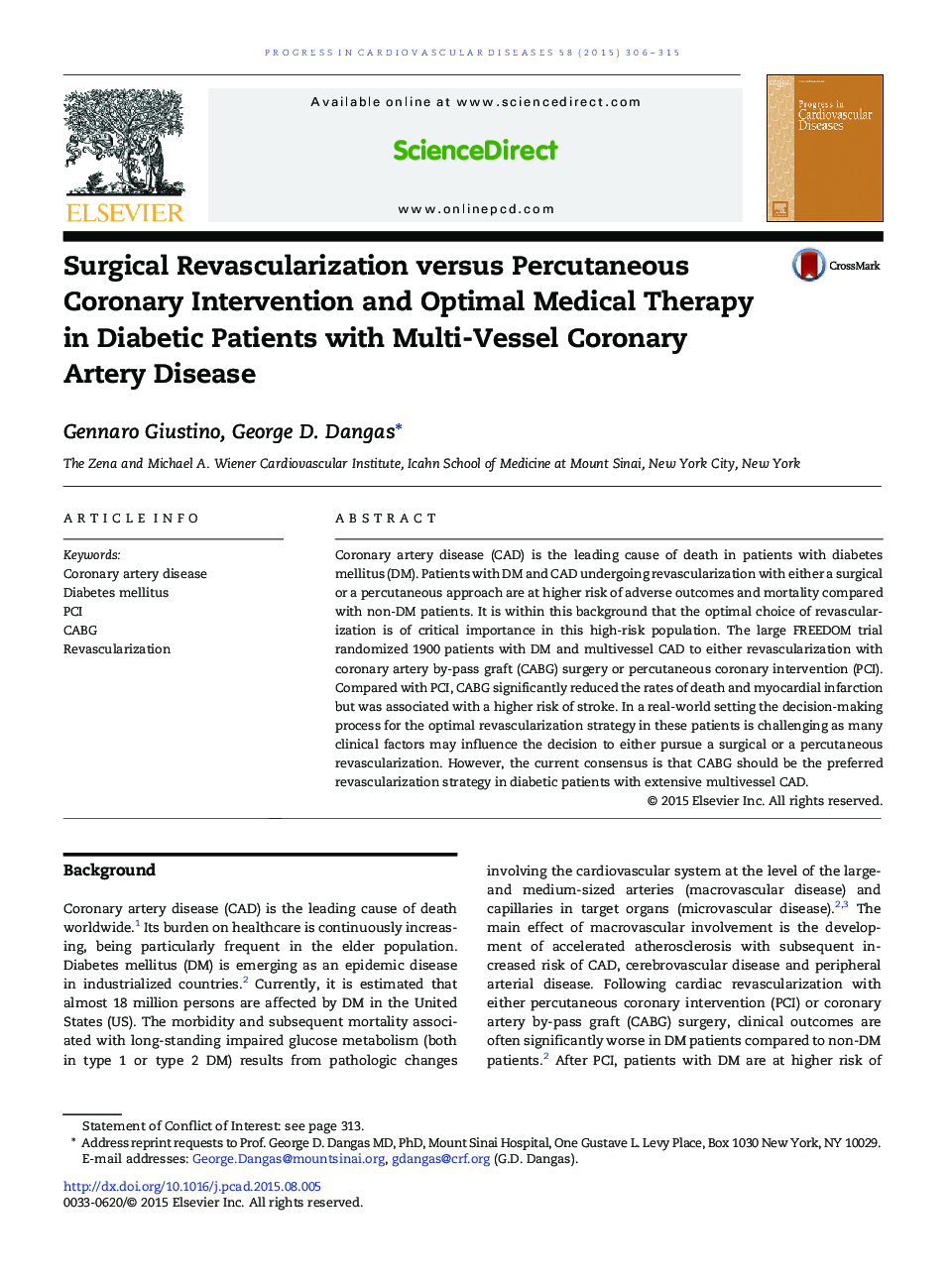| Article ID | Journal | Published Year | Pages | File Type |
|---|---|---|---|---|
| 3006282 | Progress in Cardiovascular Diseases | 2015 | 10 Pages |
Coronary artery disease (CAD) is the leading cause of death in patients with diabetes mellitus (DM). Patients with DM and CAD undergoing revascularization with either a surgical or a percutaneous approach are at higher risk of adverse outcomes and mortality compared with non-DM patients. It is within this background that the optimal choice of revascularization is of critical importance in this high-risk population. The large FREEDOM trial randomized 1900 patients with DM and multivessel CAD to either revascularization with coronary artery by-pass graft (CABG) surgery or percutaneous coronary intervention (PCI). Compared with PCI, CABG significantly reduced the rates of death and myocardial infarction but was associated with a higher risk of stroke. In a real-world setting the decision-making process for the optimal revascularization strategy in these patients is challenging as many clinical factors may influence the decision to either pursue a surgical or a percutaneous revascularization. However, the current consensus is that CABG should be the preferred revascularization strategy in diabetic patients with extensive multivessel CAD.
